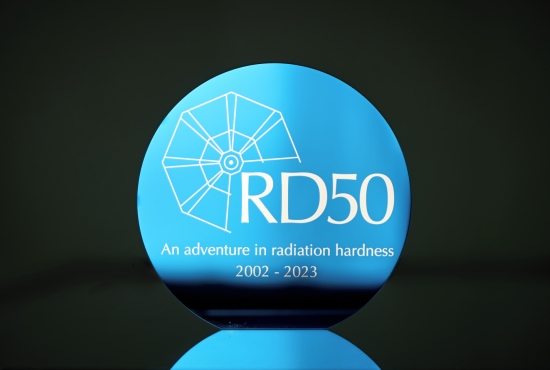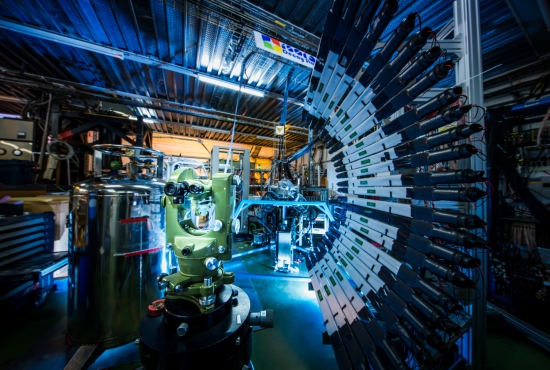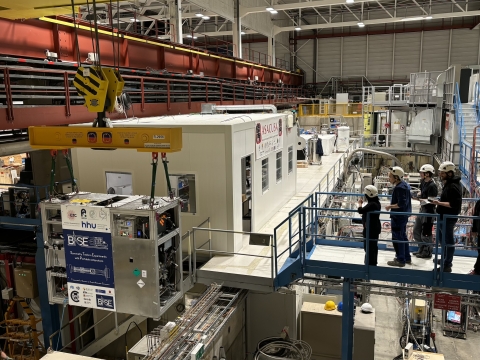A word from the EP Deputy Department Head - December 2024
Dear Colleagues,
It is my pleasure to share the latest edition of the EP newsletter with you. You will notice that this time several articles have a “historical touch” in line with the one-year-long celebrations of CERN’s 70th anniversary that are coming to a close.
READ MORE
Interviews & Features
The origin of Lead and the s-process branching points
Unveiling the cosmic origins of lead isotopes, read how groundbreaking experiments at the n_TOF facility and their role in decoding the mysteries of stellar nucleosynthesis.
Read MORESND@LHC Experiment: hunting for high-energy neutrinos and preparing for the HL run
Discover how the SND@LHC experiment is pioneering the study of high-energy neutrinos, unlocking new insights into particle physics and proton structure.
Read MORESilicon Photonics Circuits for Integrated Optical Readout of future High Energy Physics detectors
Discover how cutting-edge Silicon Photonics is revolutionizing data transmission in high-energy physics experiments with unprecedented speed, efficiency, and radiation tolerance.
Read MOREIn discussion with Michael Campbell: Unpacking the Medipix/Timepix Revolution
Discover how CERN's Medipix and Timepix chips revolutionized fields from medical imaging to space exploration in this in-depth interview with Michael Campbell.
Read MOREExtended Scalar Sectors are considered from all angles at CERN
The conference "Extended Scalar Sectors from All Angles" brought together theorists, experimentalists, and phenomenologists to explore scalar particles and their implications for dark matter, electroweak transitions, and beyond.
Read MOREDevelopment of Radiation Tolerant Silicon Detectors for the LHC and HL-LHC
Silicon detectors, introduced in the 1980s, revolutionized particle tracking in high-energy physics with unmatched precision, and continue to evolve to meet the demands of modern colliders.
Read MOREResults from the experiments
ATLAS hones in on Higgs-Boson Couplings to Heavy Flavour Quarks
ATLAS's latest precision measurements of Higgs-boson couplings to top, bottom, and charm quarks offer critical insights into the mass-generation mechanisms predicted by the Standard Model.
Read MOREThe 2024 n_TOF run: Highlights and perspectives
The 2024 campaign broke new ground with innovative neutron-induced reaction studies, pioneering technologies like high-pressure gaseous targets, and international collaborations, setting the stage for the facility's continued success as it nears its 25th anniversary.
Read MORECAST Sets New Benchmarks in the Quest for Axions
CAST collaboration sets new benchmarks in axion research, pushing the boundaries of particle physics and dark matter detection with innovative technologies and groundbreaking findings.
Read MORENA62 Observes Ultra-Rare Kaon Decay to Pion and Neutrinos
The NA62 experiment at CERN has taken a significant leap in probing the ultra-rare decay of charged kaons to a pion and neutrinos, a key test of the Standard Model and a window into potential new physics.
Read MOREPerturbed angular correlations at ISOLDE
The cutting-edge MULTIPAC system, featuring groundbreaking cryogenic-magnetic capabilities, promises to revolutionize investigations into magnetic and ferroelectric properties, offering a bright future for materials science and nuclear physics.
Read MORESpecial Features
Interview with Ugo Amaldi: Reflections on CERN's 70-Year Legacy and European Collaboration
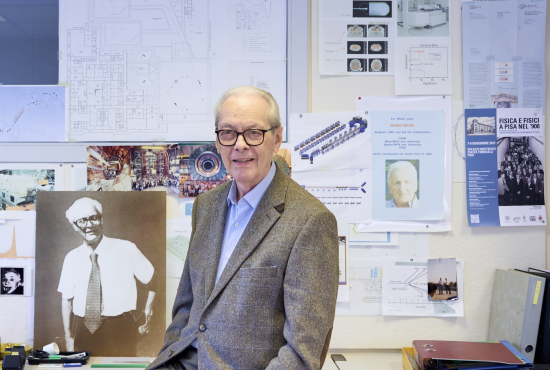
Discover the untold stories behind the birth of European Big Science as Ugo Amaldi shares personal insights into the visionaries who built CERN and shaped a new era of scientific collaboration.
Read MORETracing the Path to Precision: The Historical Evolution of Electroweak Physics at the LHC
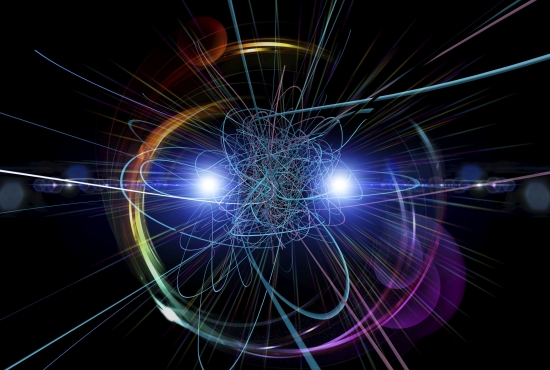
Delve into the latest electroweak precision measurements at the LHC, providing critical tests of the Standard Model and insights into potential new physics.
Read MOREUnveiling the Early Universe: The Historical Journey to Discovering the Quark-Gluon Plasma
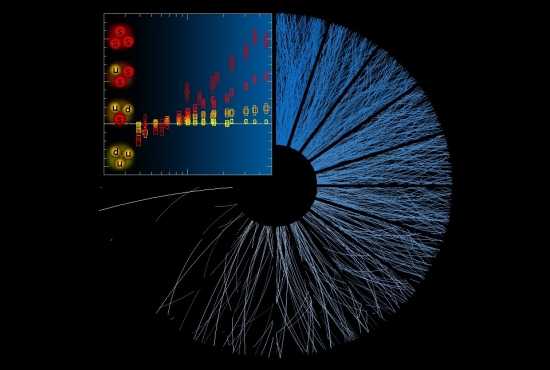
Discussing the cutting-edge advancements in high-energy nuclear collisions and the quest to probe the properties of the quark-gluon plasma.
Read MORECERN's BASE-STEP: A Leap Forward in Antimatter Transport
CERN's BASE collaboration has achieved a groundbreaking milestone in antimatter research by developing a transportable system capable of securely moving and storing antimatter, paving the way for unprecedented scientific discoveries.
Read more












